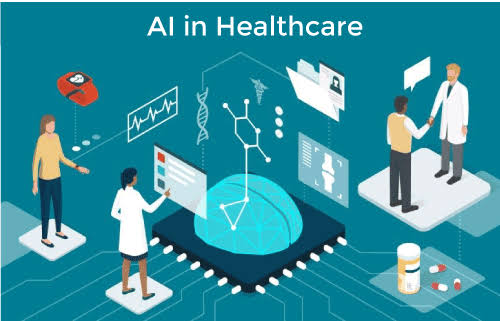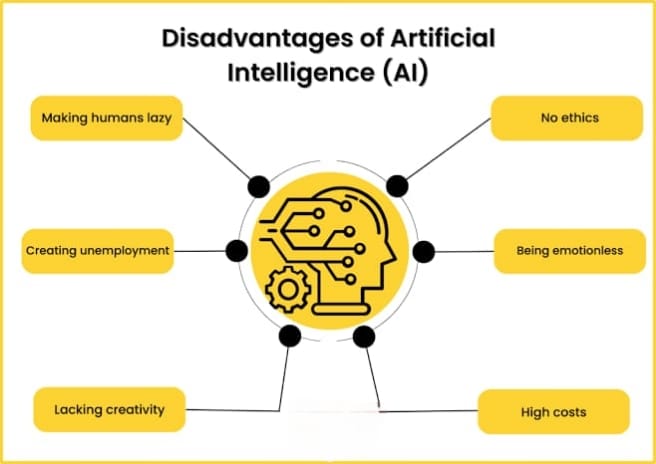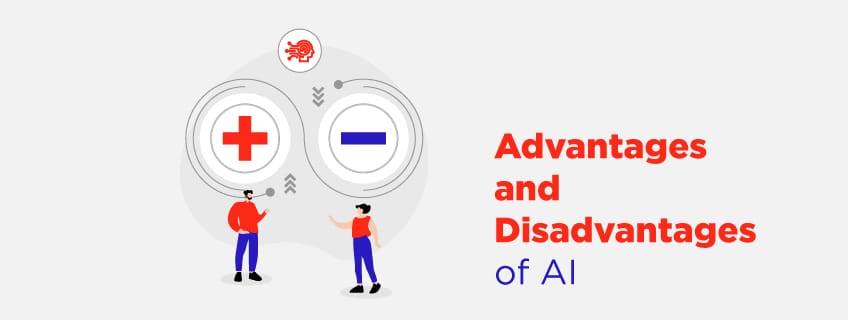Artificial Intelligence (AI) transforms our world in ways once thought possible only in science fiction. From enhancing daily tasks to reshaping industries, AI is a powerful tool with immense potential. However, like any revolutionary technology, it has its benefits and drawbacks. Understanding its impact on the future is essential as AI continues to evolve.
Benefits of Artificial Intelligence
1. Efficiency and Automation
AI excels at automating repetitive tasks, reducing human error, and increasing efficiency. From manufacturing to customer service, automation saves time and money, enabling companies to focus on innovation.
For example, AI-powered robots streamline production lines, while chatbots provide 24/7 customer support. This level of automation helps organizations operate more effectively.
2. Improved Healthcare
AI is revolutionizing the healthcare sector. It aids in early diagnosis, drug discovery, and personalized treatment plans. AI-driven tools like predictive analytics and medical imaging analysis enable faster, more accurate diagnoses.

For instance, AI algorithms can detect cancer in its early stages, increasing survival rates. Telemedicine and wearable devices equipped with AI further enhance patient care and monitoring.
3. Enhanced Decision-Making
AI processes vast amounts of data quickly, providing insights that improve decision-making across various industries. Businesses use AI for market analysis, trend prediction, and strategic planning.
AI detects fraudulent transactions in finance in real-time, protecting both companies and customers. AI optimizes crop management and water usage in agriculture, promoting sustainable farming practices.
4. Innovation in Transportation
The development of autonomous vehicles showcases AI’s potential in transforming transportation. Self-driving cars promise reduced traffic accidents, improved fuel efficiency, and increased accessibility for individuals unable to drive.
5. Personalized Experiences
AI enhances user experiences by tailoring content and services to individual preferences. From personalized shopping recommendations to customized learning platforms, AI creates more engaging and relevant interactions.
Drawbacks of Artificial Intelligence

1. Job Displacement
Automation powered by AI can lead to job losses, especially in industries reliant on repetitive tasks. While it creates opportunities in tech-driven roles, workers in certain sectors face challenges in adapting.
For example, factory workers may be replaced by AI-powered machines, while drivers might lose jobs to autonomous vehicles. Upskilling and reskilling programs are essential to mitigate this impact.
2. Ethical Concerns
AI raises ethical questions, including bias in algorithms, lack of transparency, and misuse of AI technologies. Biased algorithms can perpetuate inequality, while deepfakes and surveillance technologies pose privacy risks.
Ensuring AI is developed and used responsibly is crucial to addressing these concerns and building trust in its applications.
3. Dependence on Technology
As AI integrates into daily life, over-reliance on technology becomes a risk. Excessive dependence may lead to a loss of critical thinking skills and reduced human oversight.
For instance, relying on AI for navigation or decision-making might result in errors when the technology fails or provides incorrect information.
4. High Costs and Accessibility
Developing and implementing AI systems require significant investments, making them inaccessible for small businesses and developing countries. This disparity can widen the digital divide and limit AI’s global benefits.
5. Security and Privacy Risks
AI’s reliance on data collection raises concerns about security and privacy. Cyberattacks targeting AI systems or data breaches can lead to misuse of sensitive information, affecting individuals and organizations alike.
Balancing Benefits and Drawbacks
The future of AI depends on how its challenges are addressed. Governments, tech companies, and individuals must collaborate to ensure AI is developed ethically and responsibly. Key steps include:
- Establishing Regulations: Governments should implement laws to prevent misuse and ensure transparency in AI systems.
- Investing in Education: Upskilling programs can help workers transition to AI-driven industries, reducing job displacement.
- Promoting Inclusivity: Making AI accessible to all ensures its benefits are shared globally, minimizing inequality.
- Enhancing Security: Prioritizing cybersecurity measures reduces risks associated with AI-driven technologies.
Conclusion
Artificial Intelligence holds immense promise for the future, offering transformative benefits across industries. However, its potential drawbacks, including job displacement, ethical concerns, and security risks, must not be ignored.
By fostering innovation while addressing these challenges, we can harness AI’s power to create a future that benefits everyone. The key lies in striking a balance—embracing AI’s capabilities while ensuring it aligns with ethical principles and societal needs.
“This Content Sponsored by Buymote Shopping app
BuyMote E-Shopping Application is One of the Online Shopping App
Now Available on Play Store & App Store (Buymote E-Shopping)
Click Below Link and Install Application: https://buymote.shop/links/0f5993744a9213079a6b53e8
Sponsor Content: #buymote #buymoteeshopping #buymoteonline #buymoteshopping #buymoteapplication”

